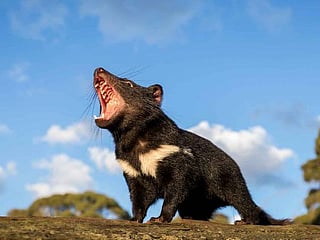For food and security in the UAE, think local
The UAE has consistently proved to be an early adopter of breakthrough technologies
_resources1_16a08546d18_large.jpg?w=480&auto=format%2Ccompress&fit=max)
Speaking at a recent meeting of the UAE cabinet, His Highness Sheikh Mohammad bin Rashid Al Maktoum, Vice President, Prime Minister and Ruler of Dubai, emphasised the need for action on greater food and water security as a matter of national priority. Sharing his vision for a more resilient and self-sufficient UAE in the post-COVID-19 period, Sheikh Mohammad instructed the Minister of State for Food Security, to explore technologies and international partnerships, to implement practical solutions.
The disruption of global supply chains, in the aftermath of the COVID-19 pandemic, has caused nations to reassess their vulnerabilities, all across the globe. Before the crisis, the well-oiled machine of global trade had become a reliable source of produce, from distant countries of origin. However, with several primary producers limiting their exports for fear of running out of their reserve stocks of food, nations with limited arable land have had to reconsider their dependence on the global market.
With the COVID-19 pandemic having unmasked the shortcomings of established practices, the new normal could well be the dawn of a much more self-sufficient UAE. In fact, the nation may well emerge as the gold standard in food and water security, for regions with large desert lands and scarce water reservesChandra Dake
The UAE will need to evolve beyond its reliance on the rest of the world, for 80% of its food. But is that even possible? With an average of just 12 days of rain a year, and not even 1% of its land considered arable, the Arab nation will need to think beyond the conventional options, which many other countries have available to them.
Investing in technology, to create new sources of freshwater
As with any other desert region in the world, the Middle East is constantly grappling with the need to conserve water, as well as expand the available sources of this precious life-giving resource. A water-stressed nation, the UAE had been investing in seawater desalination and cloud seeding as part of its Water Security Strategy 2036 program. However, both these strategies have limitations.
Seawater desalination is an extremely energy intensive strategy, adding significantly to the carbon footprint of the emirates. On the other hand, while cloud seeding has certainly increased the amount of annual rainfall in the UAE, the nation has a limited capacity to harvest and store this water. Which, of course, brings us to the other half of the water and food security challenge. The scarcity of water is far from the only issue facing the production of food in a desert. High temperatures, degraded soil and salinity add to an already knotty problem. Fortunately, technology is rapidly creating a diverse toolkit of unconventional options, for desert farming.
Exploring alternative means of food production
The UAE administration has been very proactive in working towards long term food security. Recent years have witnessed pilot projects to test the viability of several out-of-the-box approaches, to grow more food locally.
In a recent project, scientists from the UAE University have collaborated with experts from the Rural Development Administration of South Korea, to grow 763 kgs of rice on 1,000 sq mts. of desert, in Sharjah. In February 2019, the International Centre for Biosaline Agriculture (ICBA) in Dubai invited over 100 farmers, agribusinesses, scientists, researchers and bureaucrats, to demonstrate alternative crops and techniques, which could help increase food production in the UAE.
Vertical farming is another approach to food production that has attracted global interest, because of its ability to grow produce within urban environments, and Abu Dhabi is home to several projects implementing the strateg. These climate controlled greenhouses, stacked several storeys high, use LED lights and water efficient irrigation to grow food close to where it will be consumed. This method offers secure year-round harvests of much more food within a given footprint, than conventional methods. The additional energy used for artificial lighting can also be offset by eliminating the need to transport produce over long distances, to where it will be consumed.
Embracing comprehensive solutions
Advanced transformative solutions have resulted in the successful farming of 1,500 acres of organic rice in the Ulam Buh Desert — one of the world’s seven driest regions, where temperatures are known to soar up to 57 degrees Celsius! The technology can also be used to keep stored water fresh for as long seven years, making it the ideal material with which the UAE can create reservoirs to harvest the rain it is seeding
Before the COVID-19 pandemic, such initiatives and innovations would have been unnecessary, due to the reliability of global supply chains, in the absence of a worldwide disruption. Many of these technologies would have been too expensive to employ, as an alternative to simply importing food. However, the pandemic has focused the attention of governments and planners on creating sustainable resilience.
It’s said that every crisis is also an opportunity. Over the years, the UAE has consistently proved to be an early adopter of breakthrough technologies. The country’s progressive government agenda and ambitious business community provide fertile ground for innovation. With the COVID-19 pandemic having unmasked the shortcomings of established practices, the new normal could well be the dawn of a much more self-sufficient UAE. In fact, the nation may well emerge as the gold standard in food and water security, for regions with large desert lands and scarce water reserves.
Chandra Dake is the Executive Chairman and Group CEO of the Dake Group, and an advocate of Innovation and Sustainability, with a Food Security and Water Conservation focus







